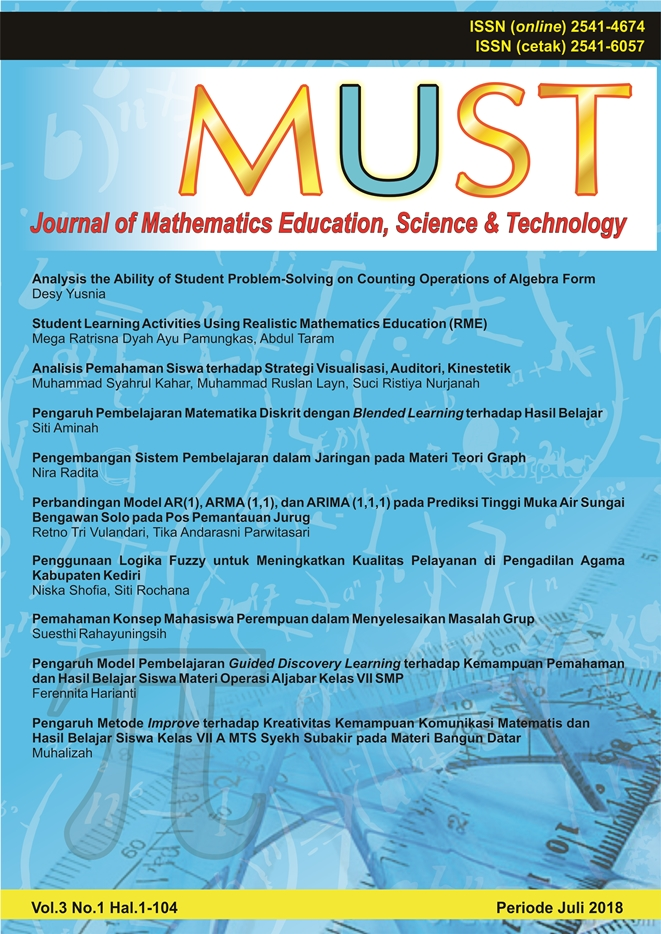Penggunaan Logika Fuzzy untuk Meningkatkan Kualitas Pelayanan di Pengadilan Agama Kab. Kediri
Abstract
Full text article
References
Parasuraman, A, Valarie A. Zeithaml and Leonard L. Berry Journal of Marketing Vol. 49, No. 4, pp. 41-50 , A Conceptual Model of Service Quality and Its Implications for Future Research. Autumn, 1985.
Badan Peradilan Agama (2011). Surat Keputusan Direktur Jenderal Badan Peradilan Agama Mahkamah Agung Republik Indonesia Nomor:0017/DjA/SK/VII/2011 Tentang Pedoman Pelayanan Meja Informasi Di Lingkungan Peradilan Agama. Diakses tanggal 24 Januari 2017. Diakses dari http://badilag.net/suratkeputusan
Harto, Budi. 2015. Analisis Tingkat Kepuasan Pelanggan Dengan Pendekatan Fuzzy Servqual Dalam Upaya Peninkatan Kualitas Pelayanan.Jurnal TEKNOIF Vol.3 No.1, April 2015.
Kotler, Philip dan Kevin Lane Keller. 2008. Manajenen Pemasaran Jilid Dua. Indeks: Jakarta.
Lupiyoadi, Hamdani. 2006. Manajemen Pemasaran jasa. Edisi kedua. Jakarta: Salemba Empat.
Pengadilan Agama Kabupaten Kediri. 2015. Laporan Tahunan Pengadilan Agama Kab. Kediri Tahun 2015. Kediri: Author.
Puti, Widya Chitami. 2013. Pengaruh Kualitas Pelayanan dan Kepuasan Terhadap Loyalitas Pasien Rawat Jalan dan Rawat Inap Rumah Sakit Otorita Batam. Tugas Akhir: Universitas Widyatama Bandung.
Tjiptono, Fandy. 2005. Pemasaran Jasa. Yogyakarta: Bayu Media Publishing.
Authors
Authors who publish with this journal agree to the following terms:
- Authors retain copyright and grant the journal right of first publication with the work simultaneously licensed under a Creative Commons Attribution-NonCommercial 4.0 International License that allows others to share the work with an acknowledgment of the work's authorship and initial publication in this journal.
- Authors are able to enter into separate, additional contractual arrangements for the non-exclusive distribution of the journal's published version of the work (e.g., post it to an institutional repository or publish it in a book), with an acknowledgment of its initial publication in this journal.
- Authors are permitted and encouraged to post their work online (e.g., in institutional repositories or on their website) prior to and during the submission process, as it can lead to productive exchanges, as well as earlier and greater citation of published work

